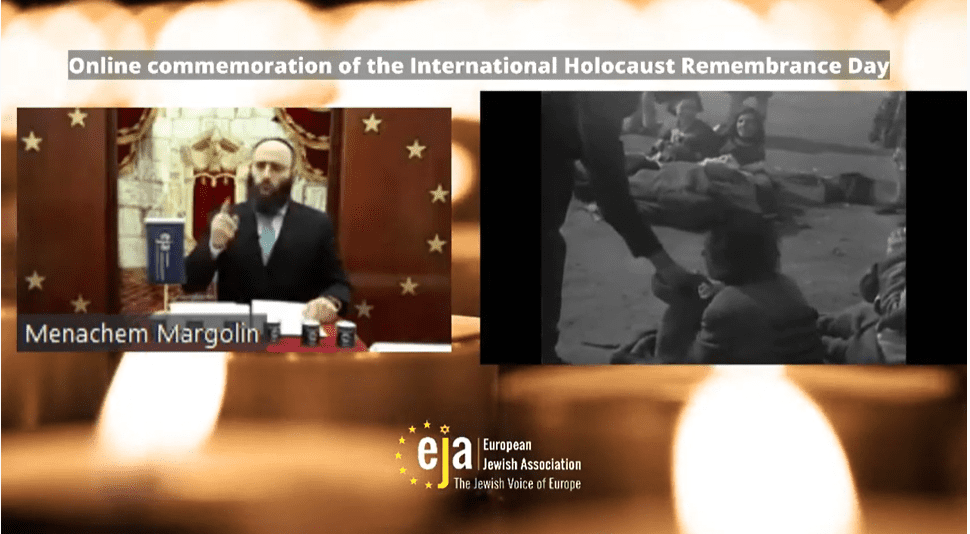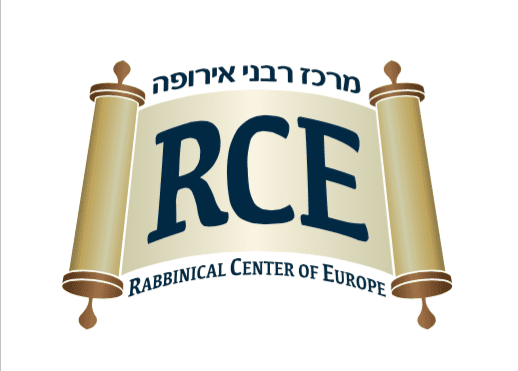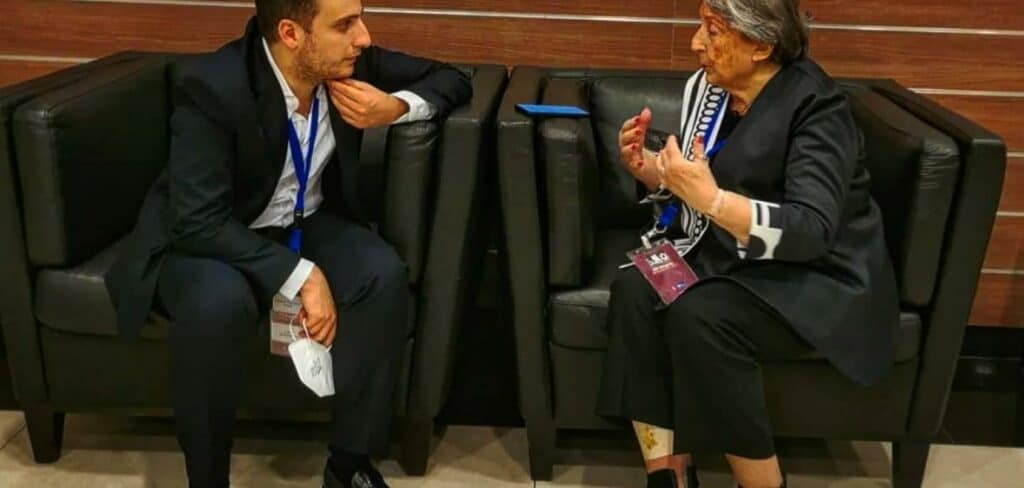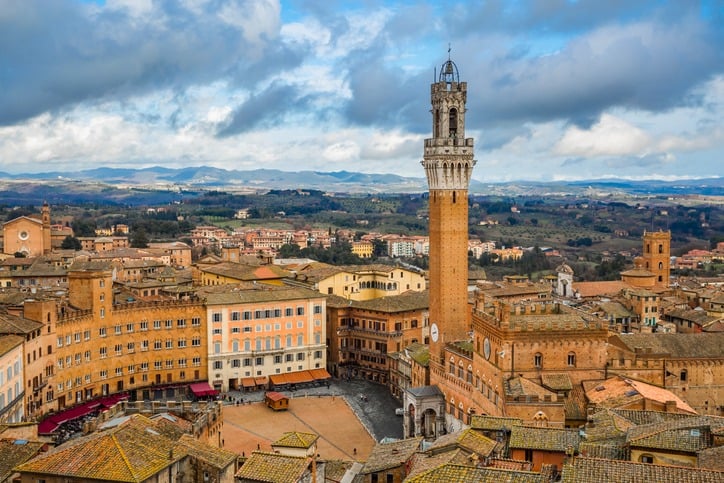Heads of state, parliamentarians, Jewish leaders, and hundreds of participants from all over Europe and from far away as Mexico and the United States took part in our special online commemoration service marking International Holocaust Day, in one of the largest online events for the day. The commemoration was livestreamed on our social Media and to an audience across the world via the Jerusalem Post and Arutz Sheva in Israel.
The event coincided with our annual ‘Not on my watch’ candle campaign, where European Leaders light our candle and post a message on social media with the hashtag not on my watch. As always the campaign was a success with heads of state and politicians from across the continent taking part. You can find all the relevant posts here
For the actual commemoration event high profile speakers included the President of the European Council Charles Michel, Belgian Prime Minister Alexander De Croo, UNESCO Director-General Audrey Azoulay, Jewish Agency Chairman Isaac Herzog, Israel’s Minister for Diaspora Affairs Omer Yankelevich, European commissioners and ministers of education from across Europe, senators, parliamentarians, and ambassadors. A number of prominent Jewish leaders addressed the virtual gathering, including Joel Mergui, President of the Israelite Central Consistory of France; Milo Hasbani, President of the Jewish Community of Milan; Raymond Forado, President of the Jewish Community of Madrid; and Holocaust survivor and President of the Jewish Forum of Antwerp and Flanders, Mrs. Regina Suchowolski-Sluzny.
Rabbi Menachem Margolin, our chairman, sounded a warning to European Leaders, “The evil that existed then still exists today. All it needs is to land in the right hands and to find the right voice. We must always keep watch. We must always be alert. We must always be ready to act. And yet, here in Europe, where a few survivors still live, we see antisemitism on the rise. We are in a situation today where more Jews in Europe feel that they won’t be here in 10 years than those who think they will be. This cannot be.”
President of the European Council, Charles Michel, said that “Remembering the Holocaust is a moral duty. Not only to pay tribute to victims, but also to renew our allegiance to our deepest human values. We, Europeans, have a special responsibility to fulfill this duty. Antisemitism has no place in our societies.”
Belgian Prime Minister Alexander De Croo said in his message,“To the survivors and families of the victims, we promise to continue to fight against all forms of negationism and attempts to minimise the magnitude of the Shoah. We will do so with all political and legal means at our disposal.”
The Chairman of the Jewish Agency, Mr Isaac Herzog said, “ European governments have a special responsibility, not only to preserve the memory of the past, but to ensure that today’s European Jewish communities can live safe, full and open Jewish lives, and practice their traditions freely. Jewish communities feel that Jewish traditions and observance are being increasingly challenged by parts of European publics and legislators.
“I ask these leaders to reject all such legislation, which would be tantamount to outlawing Judaism as a whole, and to oppose any attempts to restrict the religious freedoms of European Jewish communities.”
Director General of UNESCO Audrey Azoulay in her message said,
“Fighting oblivion is UNESCO’s mission. This mission is all the more important today to educators, teachers and pupils. We are working on new content for teachers and trainers against antisemitism in schools. We are also strongly supporting governments to fight all attempts to excuse the inexcusable.”
Israeli Minister for Diaspora Affairs, Mrs Omer Yankelevich spoke about about the rise in online hate speech saying,
“Our Ministry has responded with our own online strategy. Alongside our monitoring center, which provides comprehensive top-down reports on current antisemitic activity on social media, the Ministry is working with major social media networks including: Facebook, Twitter, YouTube and Amazon to ensure accountability.
“Just as countries are responsible for the antisemitic activity within their borders, tech-giants are responsible for stamping out antisemitism from their platforms.”
Jewish Leaders from across Europe shared with those present their concerns, the challenges faced by their communities and their hopes for the future.
Mr Joel Mergui, the President of the French Consistoire said, “Antisemitism, anti-Zionism and attacks on Freedom of Religion make this a diificult time to be Jewish in Europe. As a result many Jews are asking themselves about their future in Europe. Which makes it incumbent on Europe to ask itself what it wants its own future to be.”
EJA advisory board member Regina Suchowolski-Sluzny, a holocaust survivor and the President of the Jewish Forum of Antwerp and Flanders put the onus on education. She said, “Our role as educators is to constantly underline the danger that intolerance and racism can lead to genocide. This battle of education must continue to be fought because a single person that suffers from racism or antisemitism is one person too much.”
Echoing this sentiment, Mr Milo Hasbani the President of the Milan Community said, “Our most important task is to continue working with the younger generation. Sadly as time goes by survivors and the older generation are less able to visit schools and education centres. That is why we are engaged in training the younger members of our community to take over this role and share the Jewish experience of the Shoah, an experience indelibly marked on our very being.”
The marathon event, which lasted over 4 hours of back to back interventions and speeches, finished with a powerful memorial prayer by Cantor and Rabbi Simcha Steinberg, Rabbi of the Jewish community of Endhoven.
You can watch the recording of the event here















